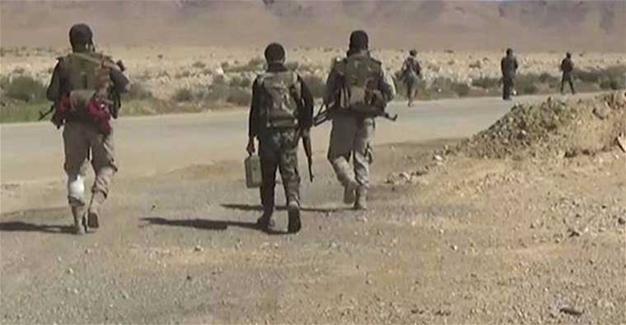Fifth round of Kazakh Syria talks focuses on safe zones
ASTANA

Powerbrokers Russia, Iran and Turkey focused July 4 on shoring up a plan for safe zones in Syria at a fifth round of talks they are pushing in Kazakhstan to help end the six-year conflict.
Moscow and Tehran, which back Syrian President Bashar al-Assad, and Ankara agreed in May to establish four “de-escalation” zones in the war-torn country in a potential breakthrough towards calming a war that has claimed an estimated 320,000 lives.
But while fighting dropped off in the weeks after the deal, it has ratcheted up in some areas since, and the key international players have yet to finalise the boundaries of the zones or determine who will police them.
Russia’s chief negotiator at the talks, Alexander Lavrentiev, told journalists in Kazakhstan’s capital Astana that these issues were “under discussion” and that “an agreement has not yet been reached.”
The two days of meetings, which include representatives of the Syrian regime and rebels, is set to conclude on July 5 with a session attended by all participants. United Nations Syria envoy Staffan de Mistura was also dashing between delegations.
The deal in May roughly laid out the areas where rebels and government forces should halt hostilities, including air strikes, for six months, but Russia, Turkey and Iran have not set exact boundaries for the zones.
The details of the agreement were addressed by the Turkish and Russian leaders in recent days, with Russian Defense Minister Sergei Shoigu paying a snap visit to Istanbul over the weekend to hold talks with President Recep Tayyip Erdoğan.
Presidential spokesperson İbrahim Kalın confirmed on July 3 that talks between Erdoğan and Shoigu were focused on the upcoming Astana meeting and that the Russian defense minister came upon the request of Russian President Vladimir Putin, who spoke with Erdoğan on the phone on June 30.
“We are exerting all the efforts to make Astana process a success. We are making all possible contributions,” Kalın told reporters at a press conference, adding that a technical delegation composed of diplomats, military and intelligence organization was en route to Astana.
“After technical meetings in Astana, it’s a big possibility that our president will meet with Mr. Putin on July 8 on the margins of the G20 Summit in Hamburg,” he said.
The Astana talks received a boost on July 3 after the Syrian army unilaterally announced a halt to fighting until midnight on July 6 in the southern Daraa, Quneitra and Sweida provinces, which together cover one of the zones.
Daraa had seen the fiercest fighting in the areas envisioned as safe zones in recent weeks.
But an AFP correspondent said air strikes pummelled the key opposition-held town of Douma in a rebel enclave of Eastern Ghouta just outside Damascus on July 4 for the first time since the de-escalation zones were announced in May.
A medical source told AFP a woman and a child were killed in the raid, a toll confirmed by the Syrian Observatory for Human Rights, which also said that 10 others were badly wounded.
The Observatory, a Britain-based monitor that relies on a network of sources inside Syria for its information, said the raids were carried out by Syrian warplanes.
 Powerbrokers Russia, Iran and Turkey focused July 4 on shoring up a plan for safe zones in Syria at a fifth round of talks they are pushing in Kazakhstan to help end the six-year conflict.
Powerbrokers Russia, Iran and Turkey focused July 4 on shoring up a plan for safe zones in Syria at a fifth round of talks they are pushing in Kazakhstan to help end the six-year conflict.